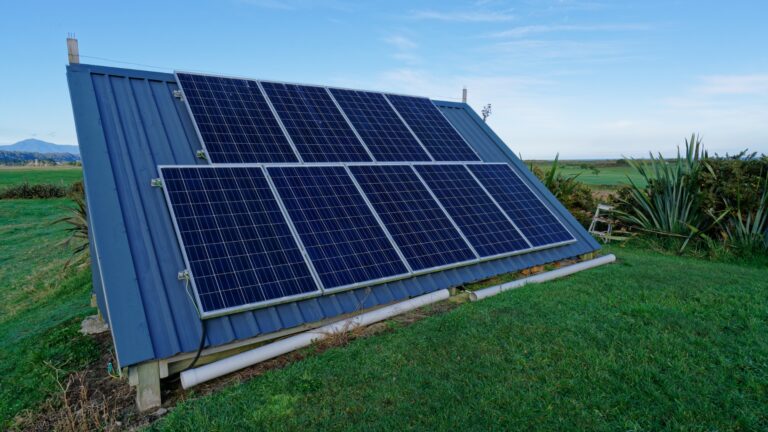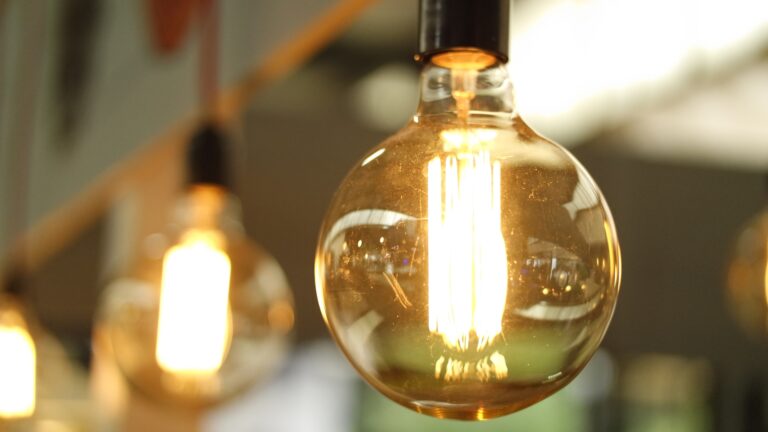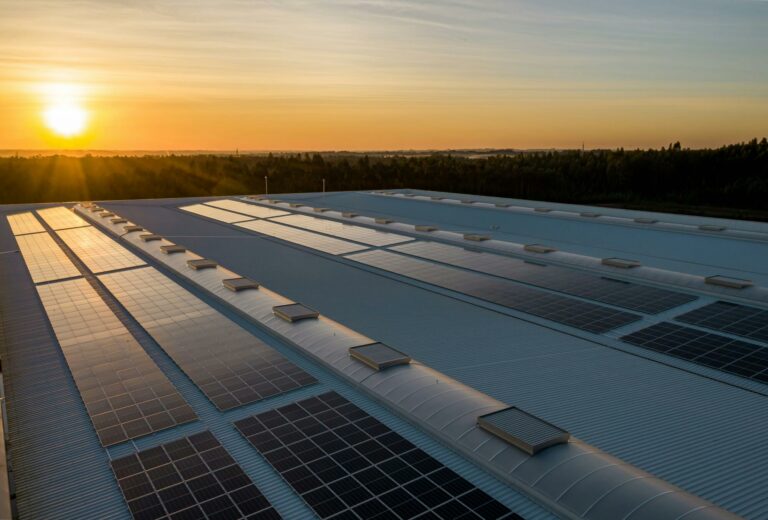Are you struggling to make your renewable energy setup more efficient? An off-grid solar inverter is your solution. This blog will guide you on how to optimize your renewable energy system using an off-grid solar inverter.
Keep reading for the insights you need!
Key Takeaways
- Off – grid solar inverters transform direct current from solar panels into alternating current, letting you use solar energy even when not connected to the main power grid.
- Different types of off-grid solar inverters, including pure sine wave, modified sine wave, hybrid, and multi-mode inverters cater to various needs, whether for efficiency or cost-effectiveness.
- Integrating other components like batteries and solar panels with your off – grid inverter optimizes system efficiency. Regular checks and maintenance prevent loss of power and extend system life.
What is an Off-Grid Solar Inverter?
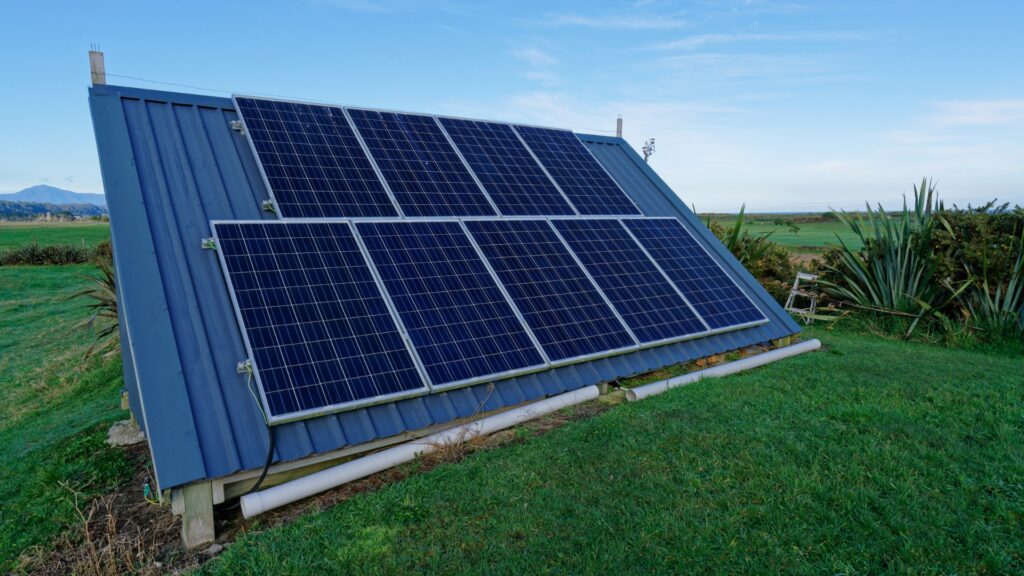
An off-grid solar inverter turns the direct current (DC) from your solar panels into an alternating current (AC) that powers home appliances. This device lets you use solar energy even when not connected to the main power grid.
Features and Functionality
Off-grid solar inverters play a crucial role in converting the DC power generated by your solar panels into usable AC power for your home or business. These innovative devices ensure that you can efficiently use renewable energy, day or night, without relying on the grid.
Their features include complete off-grid solar kits, hybrid options, and mobile solutions to meet diverse needs. Each inverter is equipped with smart technology to maximize energy conversion and reduce waste.
Opting for an off-grid solar inverter means gaining the freedom to customize your renewable energy setup according to specific requirements. Whether it’s integrating batteries for storage or connecting various system components like solar panels, these inverters make it possible.
They are available in different models catering to various capacities, ensuring every commercial property owner and homeowner in finds an ideal match for their energy demands.
Benefits of Using an Off-Grid Solar Inverter
Off-grid solar inverters empower Indiana’s commercial property owners and homeowners with the ability to generate and store their own energy, making them independent of traditional power grids.
This independence is crucial, especially in remote areas where connecting to the grid can be challenging or outright impossible. Off-grid inverters ensure a consistent power supply even in locations far from urban centers, offering incredible reliability.
Using an off-grid solar inverter also significantly cuts down on electricity bills by reducing dependence on conventional energy sources. Homeowners and commercial property owners enjoy not just cost savings but also contribute to environmental conservation through lower carbon emissions.
These systems offer flexibility in design and component integration, optimizing renewable energy setups for efficiency and effectiveness. With an off-grid solar inverter, businesses and residents gain energy security, knowing they have a reliable power source during outages or emergencies.
Optimizing Your Renewable Energy Setup
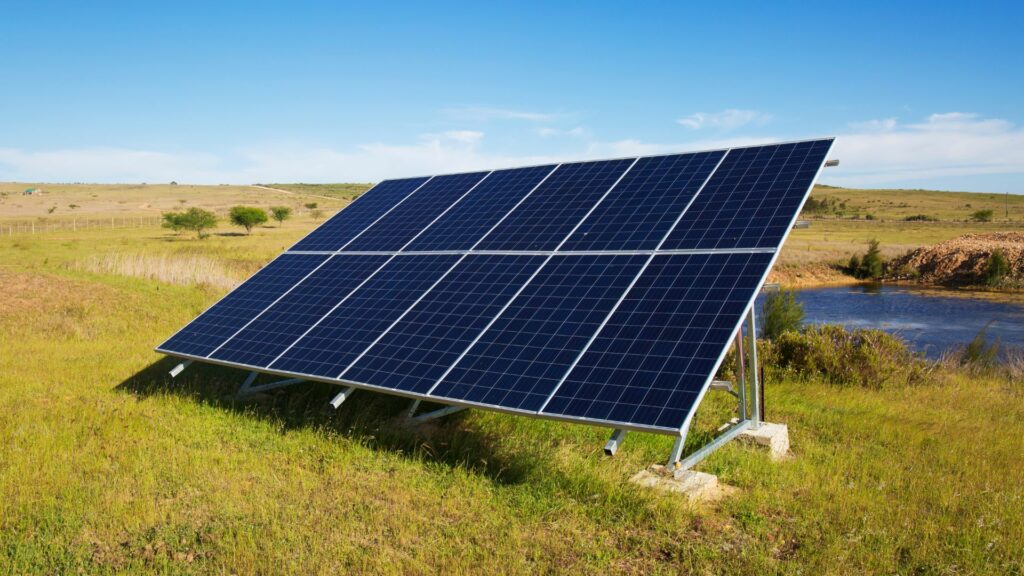
To get the most out of your renewable energy setup, you must fine-tune your off-grid solar inverter. This step ensures your entire system works efficiently and meets your energy needs perfectly.
Proper Sizing of Inverter for Your System
Choosing the right size for your off-grid solar inverter is a crucial step to ensure your renewable energy setup meets your needs. The size of the inverter must match the total wattage of all appliances and devices you plan to run simultaneously.
This means adding up the watts used by each item, from lights and refrigerators to computers and TVs, then selecting an inverter that can handle this load with some room to spare. Going too small could lead to power shortages, while picking one too large might not be cost-effective.
Ensuring your off-grid solar inverter has enough capacity also prepares you for future expansions or increased energy demands without needing an immediate upgrade. It’s about finding a balance between what you currently need and what you might need down the line, making sure your investment grows with your requirements.
Keeping these considerations in mind will help commercial property owners and homeowners in Indiana optimize their renewable energy setups effectively.
Monitoring and Maintaining Your Off-Grid Solar Inverter
After integrating your off-grid solar inverter with other essential components like batteries and solar panels, the next vital step is to ensure its optimal performance over time. This involves regular monitoring and maintenance tasks. Here is a detailed guide on how to keep your off-grid solar inverter functioning at its best:
- Check the Inverter’s Display Regularly: Most off-grid solar inverters come with a digital display that provides valuable information about performance, including current input and output power, battery status, and any error messages. Review this data frequently to catch issues early.
- Clean the Inverter’s Exterior: Dust and dirt can accumulate on your inverter, potentially causing it to overheat or malfunction. Use a soft cloth to gently wipe the exterior surfaces clean every few months.
- Ensure Adequate Ventilation: Your off-grid solar inverter needs good airflow to prevent overheating. Check that nothing blocks its vents and that it’s installed in a location where air can circulate freely around it.
- Inspect Connections Regularly: Loose connections can lead to inefficient system performance or even damage. Confirm that all cables connected to the inverter are secure and tight.
- Update Software as Needed: Just like your smartphone or computer, your off-grid solar inverter may need software updates for enhanced functionality and security. Follow the manufacturer’s instructions for updating the software.
- Monitor Battery Health: Since inverters work closely with batteries, keeping an eye on battery health is crucial. Look for signs of wear or degradation, which might affect how effectively your inverter operates.
- Schedule Professional Inspections: Even with diligent personal checks, having an expert inspect your system annually can detect issues you might miss. They can perform more thorough tests on both the inverter and associated equipment.
- Keep Documentation Handy: Store all manuals, warranties, and service records related to your off-grid solar inverter in an accessible place. This information will be invaluable for troubleshooting or if you need professional assistance.
By following these steps diligently, you’ll ensure that your off-grid solar inverter serves you efficiently for many years, keeping your renewable energy setup running smoothly without unexpected hiccups or downtime.
Conclusion
Optimizing your renewable energy setup with an off-grid solar inverter brings efficiency and reliability. Proper sizing and integration ensure that your system meets energy needs without hassle.
Have you thought about how this technology can transform your property? The right inverter makes a significant difference, improving overall performance. For continuous power supply and sustainability, consider updating or installing an off-grid solar inverter.
Take the first step today for a greener tomorrow on your Indiana property.
FAQs
1. What is an off grid solar inverter?
An off grid solar inverter changes the power from your solar panels into electricity that your home can use.
2. Why should I consider using an off grid solar inverter for my renewable energy setup?
Using an off grid solar inverter lets you store and use your own electricity, making you independent from the main power grid.
3. Can an off grid solar inverter save me money?
Yes, by storing excess energy for later use, an off-grid solar inverter reduces the need to buy electricity, saving you money over time.
4. How do I know if my renewable energy setup needs an off-grid solar inverter?
If you want to use your generated solar power even when there’s no sunlight or be completely independent of the main electricity supply, then adding an off-grid solar inverter is a smart choice.
Meta Description:
Ready to upgrade your renewable energy system? Explore the benefits of incorporating an off-grid solar inverter for optimal performance.

